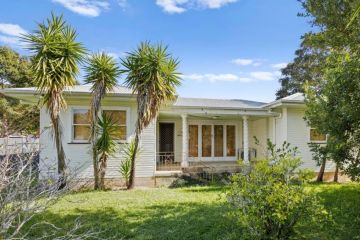Older Australians will not downsize unless they have to, new report finds

Older Australians do not want to downsize after retirement unless they are forced to by major life events, despite encouragement by various governments, a new report has found.
About 65 per cent of homeowners aged 65 to 74 chose to stay put rather than downsize from 2001 to 2016, according to the Australian Housing and Urban Research Institute.
Lead report researcher and University of Sydney associate professor Stephen Whelan said homeowners were more likely to move due to deteriorating health or the death of a partner.
“Our research shows that older, home owning Australians are generally reluctant to downsize or spend their housing wealth over the course of their retirement,” Professor Whelan said.
“When such transitions do occur, they tend to be associated with key life events that are not induced by or associated with policy settings,” he said. “For example, healths shocks that require a move into aged care, retiring from the workforce or the death of a partner.”
The situation was quite different for older Australians renting in the private sector as they have much higher rates of moving homes, he said.
“Older renters, of course, have no housing equity to sell, and instead have much higher movements,” Professor Whelan said. “Less than half of those renting a home in 2001 remained in the same dwelling in 2016, and only a third of renters over aged in 2001 were in the same dwelling 15 years later”
The research found Australians aged 55 to 65 were less likely to own their home outright and have less equity in their home than their older counterparts.
The cost of moving was the biggest barrier to moving, with the report citing the cost of stamp duty and removalists. The next biggest barrier was poor health, disability and frailty.
The report suggested policy areas for discussion should include replacing stamp duty with a broad-based land tax, the potential benefits to homeowners in the tax system and the concessional treatment of owner-occupier housing in the age pension eligibility rules.
While downsizing was often touted as a good option to help improve older Australian’s financial situation, about 20 per cent sold their existing home to buy a less expensive or smaller place.
Grattan Institute research fellow Brendan Coates said this research backed up previous studies that document Australians’ preference to age in the family home rather than downsize or move into aged care.
“Research shows that the desire is to age in place. Financial considerations don’t tend to come into it that much,” Mr Coates said, adding that many physically downsize while spending just as much if not more on another home for its better location and amenities.
He said while abolishing stamp duty was an obvious policy measure, it would not be enough to convince homeowners, simply because of their strong emotional attachment to the family home.
“If you provide further incentives for downsizing, those who were going to downsize will use them but it won’t convince others to downsize,” Mr Coates said.
“The number one reason to stay in the family home is to stay in the home they grew up in,” he said. “In fact, the push to provide more age care at home may have the effect of delaying downsizing.”
“It’s very hard to get people to downsize [because of that emotional attachment] … you’d have to throw a lot of money to get people to downsize and I don’t know if that’s a good use of public funds.”
We recommend
We thought you might like
States
Capital Cities
Capital Cities - Rentals
Popular Areas
Allhomes
More
- © 2025, CoStar Group Inc.







